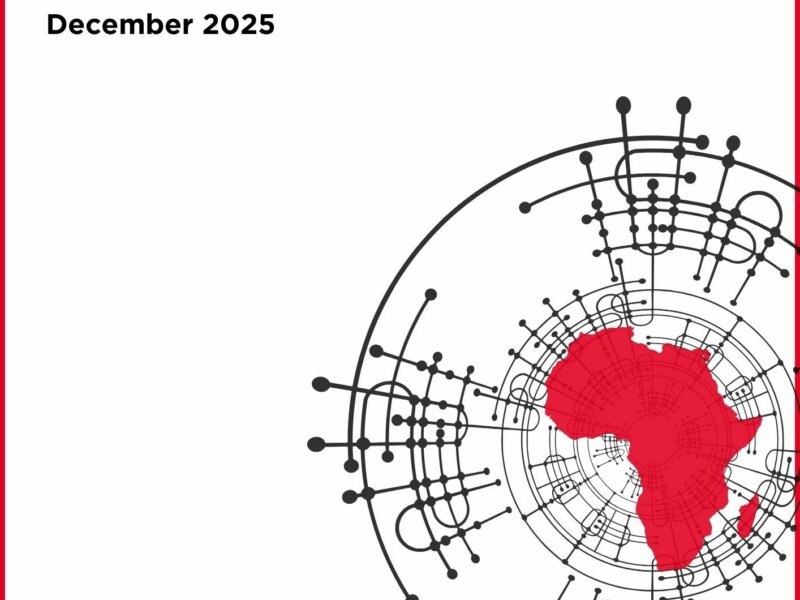Why Djibouti is strategic for the security of the Red Sea
From the protection of maritime trade to the stability of the Horn of Africa: the importance of Djibouti’s military facilities for Mediterranean and European security.

The Red Sea represents a major hub of global trade as well as an area of growing importance for international stability and security. Enjoying a geographical position as a bridge between the Mediterranean and the Indo-Pacific, the area also serves as a link between the Gulf countries, the Horn of Africa, and the players of the Global South. In this region, in addition to the risk posed by the Houthis, there are numerous potential elements of instability and unrest, including the growing tensions between Ethiopia and the coastal countries of Eritrea and Somalia; the civil war in Sudan; the ethnic clashes in the Ethiopian regions of Amara and Tigray; Somaliland’s secessionist aspirations from Mogadishu; and the never-ending threats of piracy and Islamist-based terrorism, whose main actor in the area is the Al-Shabaab group.
In such a scenario, Djibouti – a country of about 23,000 km2, located in the African shore of the Bab-el-Mandeb Strait – constitutes the main strategic hub, from which some of the world’s most significant players operate to protect their national interest. With the aim of preventing the risks just described, in the last two decades numerous actors have proceeded to install military bases on the Djiboutian territory, to achieve a twofold objective: the protection of maritime trade and projection in loco of rapid response capabilities to potential crises and instability scenarios affecting the African, the Middle Eastern and the Indian Ocean theatres.
Consider, for example, the case of the United States and China. For Washington, the base in Djibouti represents the only permanent base on the entire African continent, while for Beijing it is their first overseas military installation in the country’s history. The White House obtained its Camp Lemmonier base in 2001, following the attacks against the embassies in Kenya and Tanzania in 1998 and, most importantly, the events of 9/11. Despite the recent strategic reorientation towards the Indo-Pacific and the decrease of the U.S. presence in Africa, the base in Djibouti still plays a crucial role both in the context of counterterrorism operations and as a hub from which to conduct anti-piracy operations in the overlying sea. Beijing, on the other hand, proceeded to establish its base in 2017 with the aim of protecting growing business interests and extending its influence on the African continent. It is worth noting, in fact, how the maritime infrastructure network that is part of the broader Belt and Road Initiative project considers the Red Sea and the Horn of Africa as two core elements. To this situation is added China’s attempt to increase its political, diplomatic, and economic ties with the players in the region and to influence their foreign agenda.
But the PRC is not the sole Asian player present in the country. Japan, in fact, opened its military base in Djibouti in 2011. Also for Tokyo, this is the first permanent foreign installation since the end of World War II. While originally Japan’s pivotal objectives were to ensure the freedom of navigation, the security of the maritime lines of communication, and to extend its influence in the Middle East and Africa, to date the base also has the function to balance the Chinese presence in Djibouti and, in general, in the Red Sea-Gulf-Horn of Africa geostrategic space.
As for regional powers, Saudi Arabia is the latest player willing to set up a military base in the country. Its activities in Djibouti – in the process of being defined – would be configured as an additional useful element in countering the terrorist activities of the Houthis, which threaten the kingdom’s interests both commercially and in relation to the copious investments on the Saudi West Coast. In this context, there are also the growing aims of regional actors such as Türkiye, the United Arab Emirates, and the Russian Federation, which for the time being do not have military bases in Djiboutian territory. In relation to Türkiye, assume significance the agreements signed between Ankara and Djibouti in February 2024 – a concrete expression of the Stratejik Derinlik through which Türkiye is seeking to expand its influence in all neighboring theatres –, related to military training, financial and humanitarian cooperation. Abu Dhabi, on the other hand, while investing considerable resources in development and infrastructural projects, including ports and special economic zones, has preferred to install military bases in Somalia, Yemen, and Eritrea. Instead, more subdued is the position of Moscow, which seems oriented to strengthen its maritime presence along the Sudanese coast.
In relation to the European powers, only France and Italy have permanent bases in Djibouti. Paris’ presence has historical roots. The African country gained independence from France in 1977 and signed a mutual defense treaty with it in 2011, under which the Forces Françaises Stationnées à Djibouti (FFDj) are deployed in various strategic sites, including the Djibouti-Ambouli International Airport, the Chabelley military airport and the Héron naval base. The main purpose is the defense of Djiboutian territory and airspace, but also the protection of French interests in the region. It is worth noting that the Paris’ contingent is the largest European one (about 1,500), and that Spanish and German troops are also located within its bases.
Rome, meanwhile, has an autonomous presence in the country with the military support base (BMIS) “Amedeo Guillet”, built in 2012 thanks to the bilateral cooperation agreement between Italy and Djibouti. The interforce installation facilitates the conduction of military operations in the surrounding area, with a focus on anti-piracy activities in the Red Sea and the Indian Ocean, aimed at protecting maritime trade passing through the Bab-el-Mandeb Strait. At the same time, the Guillet base serves as a starting point for the Horn of Africa’s countries stabilization activities, Somalia in primis. To mention the two most recent uses, the base was used to facilitate the evacuation of compatriots present in Sudan in the aftermath of the outbreak of the Civil War in 2023, and to support the conduction of the EUNAVFOR “Aspides” multilateral mission to protect maritime assets from Yemeni Houthi attacks.
The large military presence in the country confirms how the Djiboutian territory (and the surrounding area) constitutes a focal point not only for regional security but also for great power competition. More generally, it represents a strategic landing-point for the African continent and the Indo-Mediterranean region. For Italy, given the ever-increasing focus on the Indian Ocean and the Pacific area and, above all, given the vital relevance of Africa in Rome’s strategic conceptualization, Djibouti ultimately represents a key asset for present and future foreign and defense policy.



